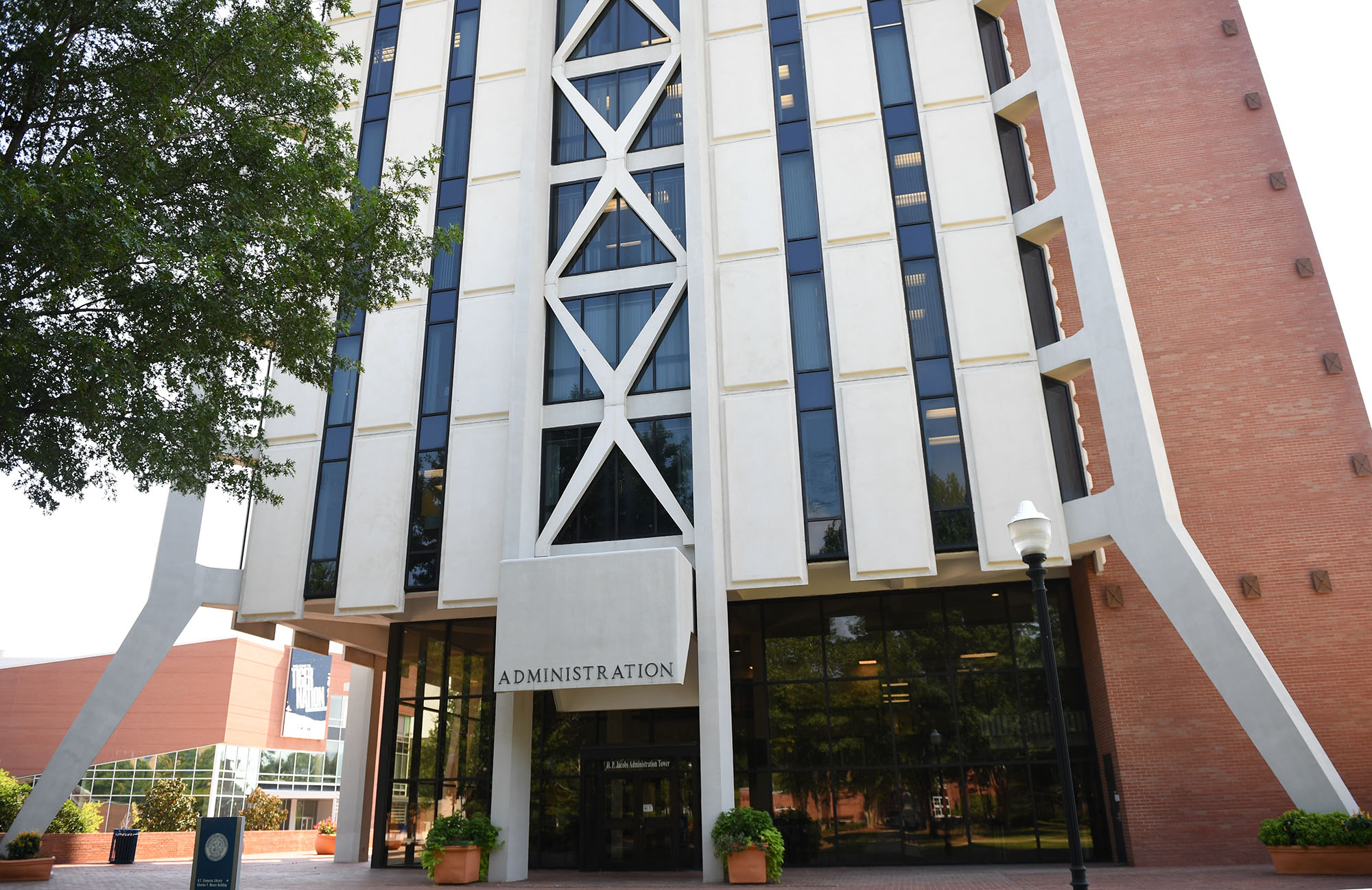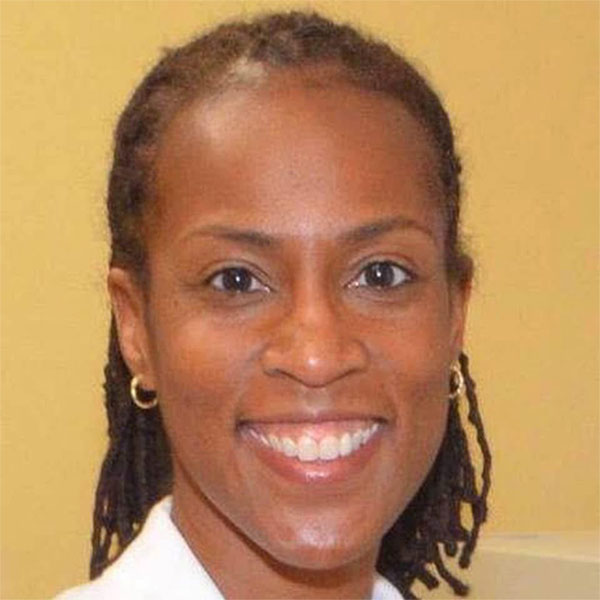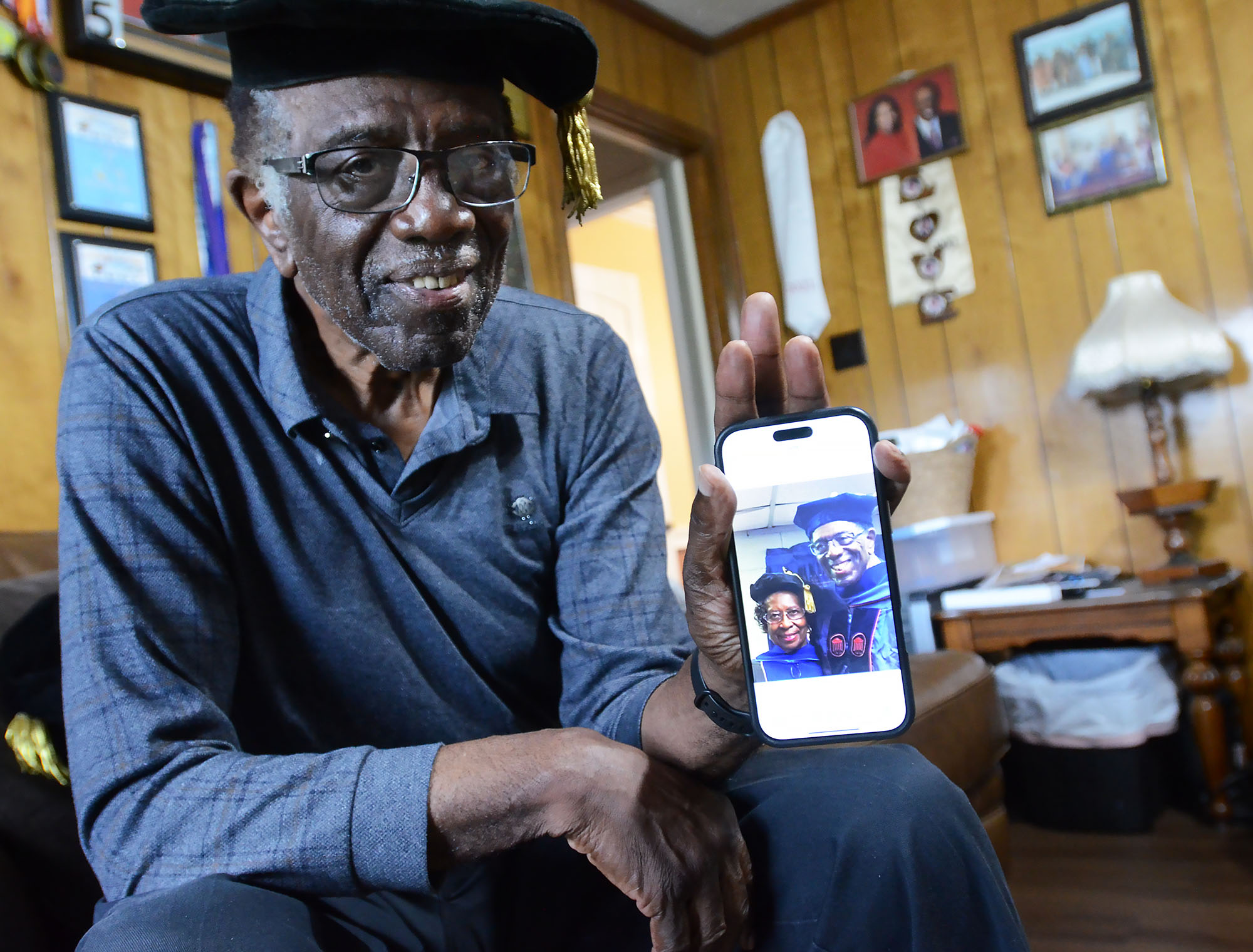Mississippi Today
Scientist: Federal research and research funding matter for all Mississippians
Editor’s note: This essay is part of Mississippi Today Ideas, a platform for thoughtful Mississippians to share fact-based ideas about our state’s past, present and future. You can read more about the section here.
Several years ago, I confronted the possibility that I, like many Mississippians, had been blindsided by cancer.
A routine blood test detected alarmingly high PSA (prostate-specific antigen) levels, and after informing me that the odds were about 25% for a positive cancer diagnosis and 60% of that for an intermediate to severe form of the disease, my urologist recommended a biopsy. Those odds represented a 15% probability of a metastatic crisis, and given the low risks associated with prostate biopsies, I opted for the procedure.
After an anxious week of waiting, the pathologist’s report indicated that I had dodged the terrifying reality of cancer—unlike for the roughly 16,000 Mississippians who are diagnosed with cancer each year, with an associated annual death toll of about 6,500.
I am a retired scientist and although my area of expertise involves field biology, my research background helped me evaluate the medical options and procedures related to prostate cancer. I could understand the relevant scientific papers and search for qualities that define good medical research: testable hypotheses, large sample sizes, replicate studies, appropriate statistical analyses and peer-reviewed papers published in reputable journals. When evaluating my options I could avoid ideologically-based claims like those promising that cod liver oil and other vitamin A supplements are effective for preventing and treating measles.
I also understood that although the initial blood test for PSA antigens, preliminary MRI and biopsy were technological procedures, those procedures were developed through painstaking scientific research—the kinds of research carried out by institutions like the University of Mississippi Medical Center’s (UMMC) Cancer Institute, but now threatened by cuts to federal agencies such as the National Institutes of Health (NIH), the National Cancer Institute and National Science Foundation (NSF).
In other words, the Trump administration is directly harming the kinds of scientific research that could improve the lives of those 16,000 Mississippians who are diagnosed with cancer each year.
In 2023, the UMMC received almost $97 million in research grants, awards and contracts, much of which came from federal funding sources. Cutting NIH funding to the UMMC and other American research institutions threatens the well-being of all Mississippians, regardless of their political affiliation, age, sex, gender, race or ethnicity—or whether their health is threatened by cancer, sickle-cell anemia, heart disease, diabetes, traumatic injury or poor delivery of medical services to underserved populations. Who among us doesn’t know multiple people whose lives have been affected by those diseases or problems? Ironically, it seems that cuts to NIH funding likely will hit “red states” like Mississippi the hardest.
Scientific research is a human endeavor, conducted by fallible human beings, as we all are. And yet the core scientific process, which relies on experimental and observational studies, verifiable data and hypotheses that can be tested by multiple independent observers, is the only truly self-correcting discipline—one that rises above the (occasional) false leads, mistakes and pettiness of its individual practitioners to improve the quality of life for everyone.
The scientific process is why we no longer believe that cancer is caused by an excess of black bile, as did physicians in the Middle Ages. We now have targeted gene therapies that dramatically increase survival rates for many types of cancers. It is why we no longer believe that malaria is transmitted by humid and stale air.
And it is why we embrace the germ theory of disease; use antibiotics to treat a variety of diseases, from syphilis to tuberculosis; and employ vaccines to prevent or diminish the damage caused by polio, measles, rubella, whooping cough: on and on and on. The medical benefits derived from high-quality scientific research is one critical reason that average life expectancy in the United States rose from roughly 40 years in 1860 to almost 79 years in 2020.
Of course, federal researchers and research dollars benefit many other aspects of life in Mississippi besides those related to health care. Proposed cuts to the U.S. Department of Agriculture’s Agricultural Research Service, which could affect as much as 50% of the workforce at some stations (there are four such stations in Mississippi, supporting research projects on everything from cotton ginning to poultry and insect pest management), would harm the productivity and competitiveness of Mississippi farmers.
Proposed cuts to the Environmental Protection Agency (EPA)—54% in the Trump administration’s proposed 2026 funding bill—will hamper the ability of the EPA to clean up Mississippi’s nine active Superfund sites, which contain toxic chemicals like PCBs and dioxins.
Or take the impacts of proposed cuts to scientific research by the National Oceanic and Atmospheric Administration (NOAA) and National Aeronautics and Space Administration (NASA). The Mississippi Gulf Coast is imperiled by rising sea surface temperatures in the Gulf of Mexico (almost 2°F between 1970 to 2020), driving increasingly powerful hurricanes, and a sea level rise of up to 10 millimeters/per year, which translates into almost 4 inches of sea level rise per decade, which in turn increases storm-driven flooding. Consequently, along Mississippi’s Gulf Coast homeowner’s insurance is becoming more and more expensive, while the nonrenewal rate by insurance companies is increasing.
Even if one does not “believe” in human-driven climate change, it remains imperative to study sea levels and sea surface temperatures to help protect against the harmful effects of increasingly powerful tropical storms—and the equally damaging effects on homeowner’s insurance rates and availability for Gulf Coast Mississippians.
It also is crucial that we understand the costs of extreme weather events, those causing at least $1 billion dollars, to help insurance companies, policymakers and scientists understand major disasters like the hurricanes that batter the Guld Coast of Mississippi—and yet NOAA will no longer collect these data.
Although scientific research is not primarily a jobs or economic stimulus program, federal research and development funding also contributes in vital ways to overall economic growth, maintaining America’s competitiveness on the world stage and our country’s high standard of living.
Recent analyses suggest that net economic returns for federal research and development dollars are much higher than for other forms of investment such as for physical infrastructure, and may be responsible for as much as 25% of post-World War II productivity and growth—and that contrary to claims by the current administration, public research investments are not less productive than private investments.
I could describe many more examples of benefits provided by federal science funding, but I will end with one perplexing but illustrative story. Last February, President Trump ordered the release of billions of gallons of water from California reservoirs operated by the U.S. Army Corps of Engineers, ostensibly to benefit Central Valley farmers and help Los Angeles fight wildfires like those that devastated the area in January. However, there were no scientific justifications for President Trump’s order, as related to hydrology, irrigation or wildfire suppression
Still, one Central Valley farmer stated that although the water release was counterproductive, “I have a conservative mindset. I encourage the trigger-pulling attitude, like: ‘Hey, let’s just get stuff done.”
Maybe there are occasions when a “trigger-pulling attitude” is appropriate. But when the gun is aimed at your own head, the results will be predictable and catastrophic—whether we’re talking ill-considered water releases from California dams or indiscriminate and draconian cuts to federal scientific agencies and research funding, which will harm the citizens of Mississippi in so many ways.
Bio: Christopher Norment holds a PhD in Systematics and Ecology from the University of Kansas and is an emeritus professor of environmental science and ecology at the State University of New York – Brockport. During his career he published over 50 peer-reviewed scientific papers and three science-related books of creative nonfiction, and received awards from the State University of New York for teaching and scholarship. He now lives in Jackson.
This article first appeared on Mississippi Today and is republished here under a Creative Commons Attribution-NoDerivatives 4.0 International License.
The post Scientist: Federal research and research funding matter for all Mississippians appeared first on mississippitoday.org
Note: The following A.I. based commentary is not part of the original article, reproduced above, but is offered in the hopes that it will promote greater media literacy and critical thinking, by making any potential bias more visible to the reader –Staff Editor.
Political Bias Rating: Center-Left
This article advocates for continued federal investment in scientific research, particularly highlighting its benefits for healthcare and other critical sectors in Mississippi. The author criticizes proposed cuts to research funding under the Trump administration, stressing the potential harm to public health, agriculture, and environmental protection. The tone reflects a clear opposition to these cuts, positioning the argument in favor of government-funded scientific research as crucial for improving quality of life and economic stability. Although the article is focused on the factual benefits of research funding, it implicitly critiques the policies of the previous administration, giving it a center-left perspective. The use of specific examples and the framing of research funding as essential for public welfare suggests a leaning toward supporting government action to maintain and expand federal research efforts.
Mississippi Today
Bluesky blocks access in Mississippi, citing free speech and privacy concerns over state law
Mississippians can no longer access the Bluesky app after the social media platform blocked access to users in the state.
Bluesky said on Friday that it made the decision after the U.S. Supreme Court declined for now to block a Mississippi state law that the platform said limits free expression, invades people’s privacy and unfairly targets smaller social media companies. The state law, passed in 2024, requires users of websites and other digital services to verify their age.
“The Supreme Court’s recent decision leaves us facing a hard reality: comply with Mississippi’s age assurance law—and make every Mississippi Bluesky user hand over sensitive personal information and undergo age checks to access the site—or risk massive fines,” the company wrote in a statement. “The law would also require us to identify and track which users are children, unlike our approach in other regions. We think this law creates challenges that go beyond its child safety goals, and creates significant barriers that limit free speech and disproportionately harm smaller platforms and emerging technologies.”
Mississippi Attorney General Lynn Fitch, whose office defended the law, told the justices that age verification could help protect young people from “sexual abuse, trafficking, physical violence, sextortion and more,” activities that the First Amendment does not protect.
The age verification law added Mississippi to a list of Republican-led states where similar legal challenges are playing out.
NetChoice is challenging laws passed in Mississippi and other states that require social media users to verify their ages, and asked the Supreme Court to keep the measure on hold while a lawsuit plays out.
That came after a federal judge prevented the 2024 law from taking effect. But a three-judge panel of the 5th Circuit U.S. Court of Appeals ruled in July that the law could be enforced while the lawsuit proceeds.
On Aug. 14, the Supreme Court rejected an emergency appeal from a tech industry group representing major platforms such as Facebook, X and YouTube.
There were no noted dissents from the brief, unsigned order. Justice Brett Kavanaugh wrote that there’s a good chance NetChoice will eventually succeed in showing that the law is unconstitutional, but hadn’t shown it must be blocked while the lawsuit unfolds.
Bluesky grew after the 2024 presidential election. Many users of X, which is owned by Elon Musk, retreated from the platform in response to the billionaire’s strong support of Donald Trump.
In Bluesky’s statement explaining its decision to block access in Mississippi, the company said age verification systems “require substantial infrastructure and developer time investments, complex privacy protections, and ongoing compliance monitoring — costs that can easily overwhelm smaller providers.”
“This dynamic entrenches existing big tech platforms while stifling the innovation and competition that benefits users,” the company added.
Bluesky said it did follow other digital safety regulations, such as the United Kingdom’s Online Safety Act. Under that statute, age checks are required only for accessing certain content and features, and Bluesky does not track which users are under 18, the platform said:
“Mississippi’s law, by contrast, would block everyone from accessing the site—teens and adults—unless they hand over sensitive information, and once they do, the law in Mississippi requires Bluesky to keep track of which users are children.”
The Mississippi law, authored by Rep. Jill Ford, a Republican from Madison, is called the “Walker Montgomery Protecting Children Online Act,” named after a Mississippi teen who reportedly committed suicide after an overseas online predator threatened to blackmail him.
The Associated Press contributed to this report
This article first appeared on Mississippi Today and is republished here under a Creative Commons Attribution-NoDerivatives 4.0 International License.
The post Bluesky blocks access in Mississippi, citing free speech and privacy concerns over state law appeared first on mississippitoday.org
Note: The following A.I. based commentary is not part of the original article, reproduced above, but is offered in the hopes that it will promote greater media literacy and critical thinking, by making any potential bias more visible to the reader –Staff Editor.
Political Bias Rating: Center-Left
The content presents a perspective that emphasizes concerns about free speech, privacy, and the impact of government regulation on smaller tech companies, which aligns with a more progressive or liberal viewpoint on digital rights and corporate regulation. It critiques a Republican-led state law as potentially overreaching and harmful to innovation, while also acknowledging the law’s intent to protect children. The balanced presentation of both sides, with a slight emphasis on the tech platform’s viewpoint and civil liberties, suggests a center-left bias.
Mississippi Today
Golden Triangle development group gets new home ‘in the middle of the kingdom’ it built
COLUMBUS — The Golden Triangle’s new headquarters for economic development has opened in the middle of the massive projects it has helped bring to Clay, Lowndes and Oktibbeha counties.
The $2.5-billion Steel Dynamics aluminum mill is visible from one window and the airport from another. Just down the road are the Airbus factory that has built 1,700 helicopters, the 400-acre PACCAR site that churns out engines and Stark Aerospace, which was awarded a $61-million defense contract last year. These are companies that Joe Max Higgins and his team have helped bring to the area.
“It’s in the middle of the kingdom,” said Higgins, the CEO of Golden Triangle Development LINK. “I mean, you can just look. It’s all here. You can just walk around and see everything.”
READ MORE: Mississippi Marketplace: Another data center on the way
The headquarters was previously located on Main Street in Columbus. But Higgins said that the agency has wanted to move to a more central location for a while. The new headquarters sits on land owned by the Golden Triangle Regional Airport, which is run by all three counties.
LINK is the regional economic development organization for the three-county area known as the Golden Triangle. It is funded by the three county governments and private backers. This melding of public and private interests was represented at Tuesday’s opening event by the attendance of public officials and business leaders.
The event honored Bobby Harper, a former member of the board of directors, who was instrumental in acquiring private funders to support the organization.
“We could not be here today without Bobby’s work,” Higgins said at the opening ceremony.
The three counties now work together on economic development, but it wasn’t that way when Higgins started. At first he was just working for Lowndes County.
READ MORE: What is Steel Dynamics, the Fortune 500 company that lawmakers gave $247M?
“I was real slow to embrace the regionalism stuff. I just always believed that the only way you win is to tear everybody’s face off,” said Higgins. “That’s still true, but I will tell you that once we put the three counties together, I found out that I had more bullets for a gun, more resources, more places for people to live, more opportunities and more money.”
Higgins is legendary for his economic development efforts, even outside of Mississippi. He’s been negotiating deals for the Golden Triangle since he was recruited from Arkansas in 2003. Since then his team has brought in over $10 billion in capital investment and over 10,000 jobs.
In the process, Higgins has developed a national profile for bringing in manufacturing jobs to the region. This has included profiles on 60 Minutes and in The Atlantic.
Even as more manufacturing moved out of the U.S., the Golden Triangle has continued to invest in manufacturing. And it’s not slowing down.
The group is working on finding a company for its fifth “megasite,” a 1,400-acre piece of land that can accommodate a large scale industrial operation. The organization recently announced a $90-million aluminum processing facility is in the works close to their new headquarters.
“The guy that grabs a hold on a tiger. The tiger starts running. What do you do?” Higgins responded when asked what the next 20 years of development in the Golden Triangle would look like. “Do you let go and the tiger eats you up, or hang on and you don’t know where you’re gonna end up? I think you hang on, and so I think that’s what we’re gonna do.”
This article first appeared on Mississippi Today and is republished here under a Creative Commons Attribution-NoDerivatives 4.0 International License.
The post Golden Triangle development group gets new home ‘in the middle of the kingdom’ it built appeared first on mississippitoday.org
Note: The following A.I. based commentary is not part of the original article, reproduced above, but is offered in the hopes that it will promote greater media literacy and critical thinking, by making any potential bias more visible to the reader –Staff Editor.
Political Bias Rating: Center-Right
This article focuses on economic development and manufacturing growth in a regional area, highlighting the efforts of business leaders and public-private partnerships. It emphasizes job creation, investment, and industrial expansion, themes commonly associated with pro-business, market-oriented perspectives. The tone is positive about economic development initiatives without critique of potential social or environmental impacts, aligning it with a center-right viewpoint that values economic growth and private sector involvement in regional development.
Mississippi Today
Lackey family members show value of education
As children during the 1950s, Hilliard Lackey and Lillian Troupe often had to skip school to pick cotton with their sharecropping parents.
They grew up together in the small north Mississippi town of Marks, both raised by devoutly Christian families.
Marks has struggled with poverty for generations, and problems were compounded by Mississippi’s history of underfunding public education for Black students. Schools remained segregated, and both said it was common for Black children around them to drop out or miss school so they could work in the fields.
“That was the life we knew, the life we inherited,” Hilliard Lackey said.
Hilliard and Lillian met as classmates in sixth grade, started dating in high school and married in 1966. Despite the challenges of the time, their parents and church leaders encouraged them to be ambitious and succeed.
Today, several members of the Lackey family have doctoral degrees: Hilliard and Lillian Lackey; their daughters, Tahirih Lackey and Dr. Katrina Davis; the couple’s daughter-in-law, Tracy Knight Lackey; and his stepbrother and sister-in-law, Dr. Robert Long and Vanessa Rogers Long.

Pew Research Center found that as of 2023, about 26% of all Black Americans 25 and older have a bachelor’s degree or higher, and 11% have advanced degrees. In Mississippi, 18.5% of Black residents have a bachelor’s degree or higher.
Hilliard Lackey is a longtime professor of urban higher education and lifelong learning at Jackson State University. He attended what was then called Jackson State College, earning his bachelor’s in history and political science, pre-law track, in 1965. (It became Jackson State University in 1974.)
Hilliard Lackey – who later earned a master’s degree in educational administration, an education specialist degree in the same topic, and a doctorate in higher education administration – was the first in his family to go to college.
“I left home and came to a whole new city, a whole new environment. It’s a college,” he said, looking back on the experience. “And I was astounded, and scared, and frightened and bewildered.”

Lillian, then still named Troupe, attended Coahoma Community College before transferring to what was then called Alcorn Agricultural and Mechanical College – since 1974, Alcorn State University. She graduated from Alcorn with a bachelor’s in business education in 1966 and earned a masters in education administration from Jackson State in 1974.
She was still living and working in Marks during community college.
“I went to Coahoma … rode the school bus, came home, got out of my clothes, went to the field, picked cotton,” she said. “And so I picked my way out of the cotton field to Alcorn.”

In June, West Coast Bible College & Seminary awarded Lillian Lackey an honorary doctorate for her years of community service.
Two of Hilliard and Lillian Lackey’s four children have doctorates. Davis has a medical degree and is a urogynecologist. Tahirih Lackey has a doctorate in civil environmental engineering and is a research hydraulic engineer at the U.S. Army Corps of Engineers Research and Development Center.

Both sisters say their parents’ emphasis on education and success and their religious faith influenced their career paths.
Davis recounted that every Sunday, each member of the family stood in front of the fireplace and discussed what they’d done that week to achieve their goals. She and her siblings attended a variety of academic and athletic summer programs before and during college.
Hilliard and Lillian Lackey converted from Christianity to the Baha’i faith as adults. They raised their children “essentially as Christian Baha’is,” according to Hilliard Lackey, and let them choose what religion to follow when they were 15 years old.
“They pretty much told us, ‘Whatever you want to be, you can be, and we’ll be there to help you,’” Davis said.
“I would recognize that my parents, they were always helping other people. Like, throughout my whole life they demonstrated those concepts,” Tahirih Lackey said.

“None of us thought we had any barriers,” Davis said. “If there were barriers, they were from our own mental blocks.”
Hilliard Lackey’s stepbrother, Dr. Robert Long, is a dentist in Clarksdale. Long also credits his upbringing for his success, saying his parents raised him and his siblings with a strong work ethic and Christian values.
“They instilled in us that nobody is going to give you anything, nobody is obligated to give you anything,” Long said.
Long grew up in a small rural town in Quitman County, 15 miles from Marks. He had a similar upbringing to Hilliard Lackey. His parents encouraged him to get an education.
He attended Earlham College, where he majored in biology and found a mentor who inspired him to become a dentist.
He described his undergraduate experience as a “culture shock” and an “academic shock.” He chose to persevere through the challenges.
“I knew I could go home,” he said, “but I didn’t want to go home.”

Vanessa Rogers Long grew up in a middle-class family in the small community of Memphis, Mississippi, and, like most of her family, has lived a life dedicated to service.
She was the first Black hospital administrator for the Mississippi Department of Corrections. She founded Mississippi Delta Connection, which is part of Links Inc. She also mentors teens on service and leadership skills. She has received several honors, including having her sorority, Alpha Kappa Alpha, dedicate a bench to her at her alma mater, LeMoyne-Owen College.
“Service is what I do,” she said.
Hilliard and Lillian Lackey are also deeply involved in community service, including their “Lackey Scholars” program inspired by a former teacher. Hillard Lackey estimates they’ve helped more than 500 high school students from Quitman County attend and graduate from Jackson State since 1967. In addition, they mentor dozens of students from Quitman County’s Madison Shannon Palmer High School to act as role models for their peers and the community.

“That’s just been our thing, it’s always been,” Lillian Lackey said. “To help somebody, if they were hungry, if they were cold, if they were whatever.”
When asked what he would tell first-generation college students, Hilliard Lackey said: “Education is an equalizer. It gives an advantage to the disadvantaged. It levels the legacy playing field.”

This article first appeared on Mississippi Today and is republished here under a Creative Commons Attribution-NoDerivatives 4.0 International License.
The post Lackey family members show value of education appeared first on mississippitoday.org
Note: The following A.I. based commentary is not part of the original article, reproduced above, but is offered in the hopes that it will promote greater media literacy and critical thinking, by making any potential bias more visible to the reader –Staff Editor.
Political Bias Rating: Center-Left
This article emphasizes the value of education, community service, and overcoming historical racial and economic challenges, themes often highlighted in center-left discourse. It acknowledges systemic issues like underfunding of Black education in Mississippi while focusing on personal achievement and community upliftment without overt political partisanship. The tone is positive and supportive of education as a tool for social mobility, aligning with moderate progressive values but avoiding strong ideological language.
-
News from the South - Alabama News Feed7 days ago
U.S. agriculture secretary announces end to subsidies for solar panels on farmland
-
News from the South - Kentucky News Feed6 days ago
First of its kind clinical trial offers new hope for Kentuckians at risk of dementia
-
News from the South - Georgia News Feed7 days ago
Don't eat this shrimp sold at Walmart due to possible radiation contamination: FDA
-
News from the South - Arkansas News Feed7 days ago
Cities across the US are embracing AI guidelines for local government workers
-
News from the South - Arkansas News Feed6 days ago
‘Alligator Alcatraz’ probed by Dems as ICE detention centers multiply in states
-
News from the South - Alabama News Feed6 days ago
Grants to boost local emergency alert systems in question as public media agency closes
-
Our Mississippi Home6 days ago
MSU Unveils Mixed-Use Development Featuring Boutique Hotel, Cultural Landmark
-
News from the South - Texas News Feed7 days ago
The Innocent and the Executed: James Beathard’s Long-Forgotten Story














































